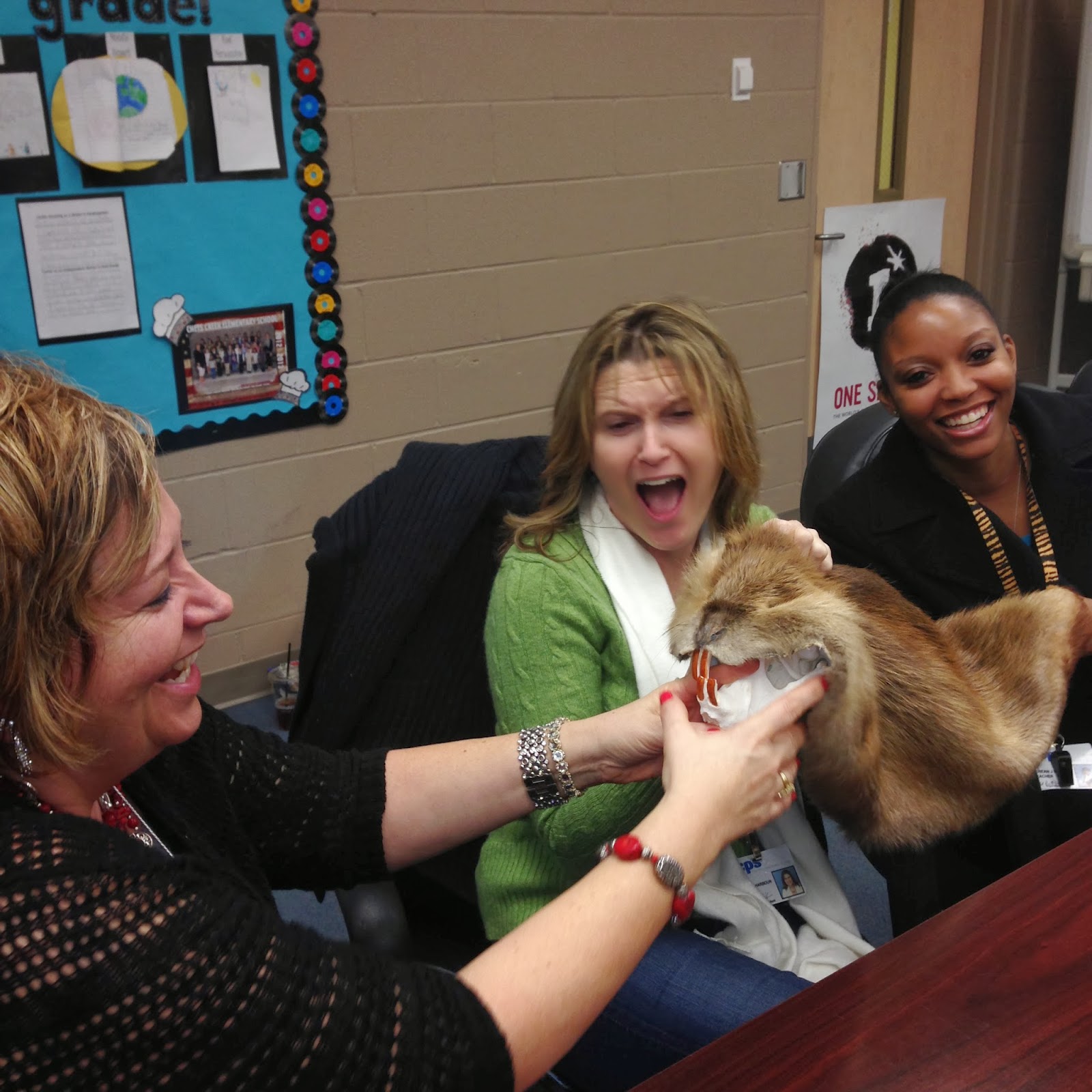
This is the standard.
K.CC.B.4 – Count to tell the number of objects
4. Understand the
relationship between numbers and quantities; connect counting to cardinality.
b. Understand that the last number name said
tells the number of objects counted. The number of objects is the same regardless
of their arrangements or the order in which they are counted.
This was the task.
Six
Tiles in All asks students to use six one inch tiles
to make different arrangements. Each arrangement
has to follow a special rule – each tile has to touch another tile in some
way. The teacher showed several
arrangements and also had the students identify non-examples. Then several students demonstrated their idea
of how the six tiles could be arranged. The
students were then challenged to find different arrangements of their own six
tiles and to choose one way to record and then share with the class, using
paper tiles and one inch grid paper.
On the following day these same paper tile
arrangements were used as quick images.
Children were encouraged to explain how they remembered the image to
reproduce it.
This task begins to meet the standard by having the
students practice different arrangements of a single number, 6. To meet this element of the standard the
students needs to demonstrate their understanding of this same concept
with other numbers. They would also need to count the items in each arrangement,
understanding that the last number said is the number of objects.
This is the background information.
Six tiles are used for this investigation because six
is the number that most kindergartners can count with accuracy. Because it takes two hands to represent six,
students naturally work with two numbers to make combinations of six. In addition, six is one of the largest
amounts that can be mentally visualized and manipulated and instantly recalled. This is also a number kinders are intimately
familiar with because most of them will turn six during the year!
This investigation gets to Piaget’s work with
conservation which is a foundational skill in number sense. Conservation of number is the understanding
that the quantity of a given number of objects remains the same regardless of
how it is spatially arranged. Six is
six is six. The child that sees six tiles horizontally as six but then has to recount
those same tiles when they take another arrangement would be unable to conserve
numbers. But a child that identifies the
horizontal as six, and then the same six tiles rearranged to make a rectangle
as six, would be able to conserve numbers.
The child that has conservation does not need to recount the same tiles
as they take different shapes because he knows that the number stays the same.
This investigation also gets at subitizing which is
the ability to immediately recognize an arrangement as a single unit. The ability to see the particular
arrangements of indentions on a die and know it is 5 without counting would be
an example of subitizing. This
investigation, like dot cards, ten-frames and rekenreks, provide students with
the opportunity to practice subitizing.
Quick images help a child practice subitizing and visualizing what the number
looks like with different patterns of that same number.
Eren was especially proud of his arrangement which he
said looked like a chess board. He liked
that the “ends” were touching and that it was a design that no one at his table
had imagined.
Nia thought it looked like a zigzag and Alex
recognized the checked pattern when he said it looked like a checker
board. Tommy said it looked like racing
and when Sawyer said he couldn’t see racing, Tommy explained that it looked
like the racing start line, the checkered flag!
Love the fact that these very young children are beginning to challenge
each other in their number talks!





